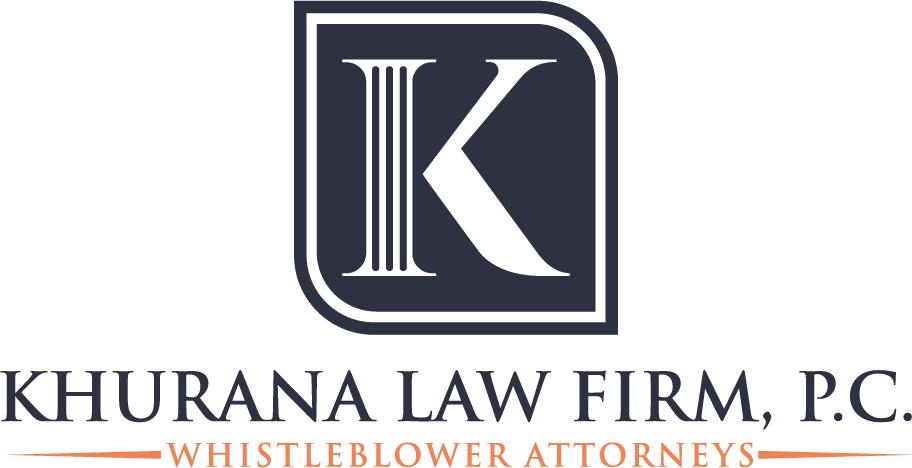
Whistleblower Lawsuit Settlements
Whistleblower lawsuit settlements can result in settlements when companies agree to pay a certain amount of money to resolve allegations of fraud or wrongdoing. Settlements may occur before or after a lawsuit is filed and can be negotiated between the parties or ordered by a court. Here are some things to know about whistleblower lawsuit settlements:
- Amounts vary: Settlement amounts can vary widely depending on the nature of the allegations, the strength of the evidence, and other factors. In some cases, settlements may be in the millions or even billions of dollars.
- Damages and penalties: Settlements may include damages and penalties for fraudulent activity, as well as legal fees and other costs. These amounts may be paid to the government, the whistleblower, or both.
- Confidentiality: Settlement agreements may include confidentiality clauses that prohibit the parties from discussing the terms of the settlement publicly. However, in some cases, the settlement amount may be made public.
- No admission of guilt: Settlements do not necessarily mean that the company admits guilt or liability. Instead, settlements may be seen as a way for the company to avoid the risk and expense of a trial and to resolve the matter quickly.
- Impact on whistleblowers: Whistleblowers may be entitled to a portion of the settlement amount, which can be a significant incentive for coming forward with information about fraudulent activity. Settlements may also provide protection against retaliation from the company.
- Ongoing investigations: Settlements do not necessarily mean that the investigation is over. In some cases, the government may continue to investigate the matter and pursue criminal or civil charges against individuals or companies involved in the alleged fraudulent activity.
Whistleblower lawsuit settlements can result in significant financial penalties for companies accused of fraud or wrongdoing. While the terms of settlements may vary, they can provide an important means for holding companies accountable for their actions and protecting whistleblowers who come forward with information about illegal activity.
The federal government filed a motion to join a whistleblower lawsuit settlements against Methodist Hospital to recover damages caused by the alleged multi-million-dollar health care program’s fraud scheme.
Medicare whistleblower lawyers at Khurana Law Firm, P.C. support the decision to come forward to report abuse and fraud in the healthcare industry.
The government’s motion comes nearly four years after the original lawsuit was filed by Jeff Liebman, the Methodist University Hospital’s former CEO, and Dr. David Stern, the former Vice Chancellor for University of Tennessee Health Science Center. The whistleblower lawsuit settlements claimed that Methodist knowingly defrauded federal and state healthcare programs, including Medicare and Medicaid, and caused damages worth more than $800 million.
What Alleged Fraud did Methodist Hospital Commit?
According to the federal government’s motion to intervene, Methodist knowingly paid kickbacks to West Clinic physicians for referring its cancer patients for hospital admissions, chemical infusions, radiation, and outpatient procedures to Methodist. The original lawsuits claimed that West physicians received more than $400 million in kickbacks between 2012 and 2018.
As part of a multi-agreement transaction, West allegedly managed inpatient and outpatient cancer care at Methodist and brought patient referrals to Methodist instead of sending them to other clinics, which increased the hospital’s revenues. The lawsuit claims that Methodist received $1.5 billion of net profit over seven years.
The number of cancer patients admitted to Methodist between 2012 and 2014 increased twofold, from 7,320 to 15,834 in just two years. The lawsuit claims that Medicare payments to Methodist for outpatient services also grew from $40.14 million in 2011 to $84.65 million in 2014 and reached $123.65 million in 2017.
Overall, the Medicare payments to Methodist for outpatient services increased by 300%.
The lawsuit alleged that being a part of the 340B program, Methodist was able to purchase drugs at a discount at the same time charging the patients’ insurance at a higher rate. The difference would be split between West and Methodist.
The allegations of fraud against Methodist Hospital are related to its billing practices for certain medical procedures. Specifically, the hospital is accused of performing unnecessary cardiac procedures and then billing Medicare and other government healthcare programs for these procedures.
The whistleblower lawsuit settlements alleges that the hospital’s physicians performed unnecessary cardiac procedures such as angioplasties and stent insertions on patients who did not need them. The lawsuit also claims that the hospital incentivized physicians to perform these procedures by tying their compensation to the number of procedures they performed.
The lawsuit alleges that these practices resulted in overbilling to Medicare and other government healthcare programs, which cost taxpayers millions of dollars. The lawsuit was filed under the False Claims Act, which allows private citizens to file lawsuits on behalf of the government when they have evidence of fraud involving government programs or funds.
The government’s involvement in the case suggests that there is sufficient evidence to support the allegations of fraud. If the allegations are proven to be true, Methodist Hospital could be liable for significant damages and penalties, including fines and exclusion from participating in government healthcare programs.
Why is the Federal Government’s Motion to Join Important for the Methodist Hospital Whistleblowing Case?
The government’s decision to intervene makes a big difference in fighting fraud and protecting patients because medical decisions premised on kickbacks pose a threat to everybody.
The Federal Government’s motion to join the Methodist Hospital whistleblowing case is significant because it increases the resources and legal power that can be brought to bear against the alleged fraudulent activity. When the government joins a whistleblower lawsuit settlements, it is essentially taking over the case and becomes the lead plaintiff. This means that the government can use its resources to investigate the allegations and pursue legal action on behalf of the whistleblower and the government.
In the case of Methodist Hospital, the government’s involvement could have several important implications:
-
- Increased likelihood of success: The government’s involvement in the case could increase the likelihood of success for the whistleblower by providing additional resources, legal expertise, and investigative power. The government has a track record of success in prosecuting healthcare fraud cases, and its involvement could help to strengthen the case against Methodist Hospital.
- Increased potential damages: If the government joins the case and is successful in prosecuting the allegations of fraud, Methodist Hospital could be liable for significant damages and penalties. These could include fines, restitution, and exclusion from participating in Medicare and other government healthcare programs.
- Deterrence of future fraud: If the government is successful in prosecuting the case against Methodist Hospital, it could send a strong message to other healthcare providers about the consequences of fraudulent activity. This could help to deter future fraud and protect taxpayers and patients.
In summary, the government’s motion to join the Methodist Hospital whistleblowing case is important because it could increase the likelihood of success for the whistleblower, result in increased potential damages for the hospital, and serve as a deterrent to future fraudulent activity. The government’s involvement brings significant legal and investigative resources to bear on the case, which could have a significant impact on its outcome.
If you have become aware of a fraud or abuse scheme, you may be able to act as a whistleblower. The national whistleblower lawsuit settlements attorney, Arvind Bob Khurana, helps individuals build a strong case and potentially claim a whistleblower lawsuit settlements reward for aiding the government. Contact us today for a consultation. For a free, confidential evaluation call (888) 335-5107




